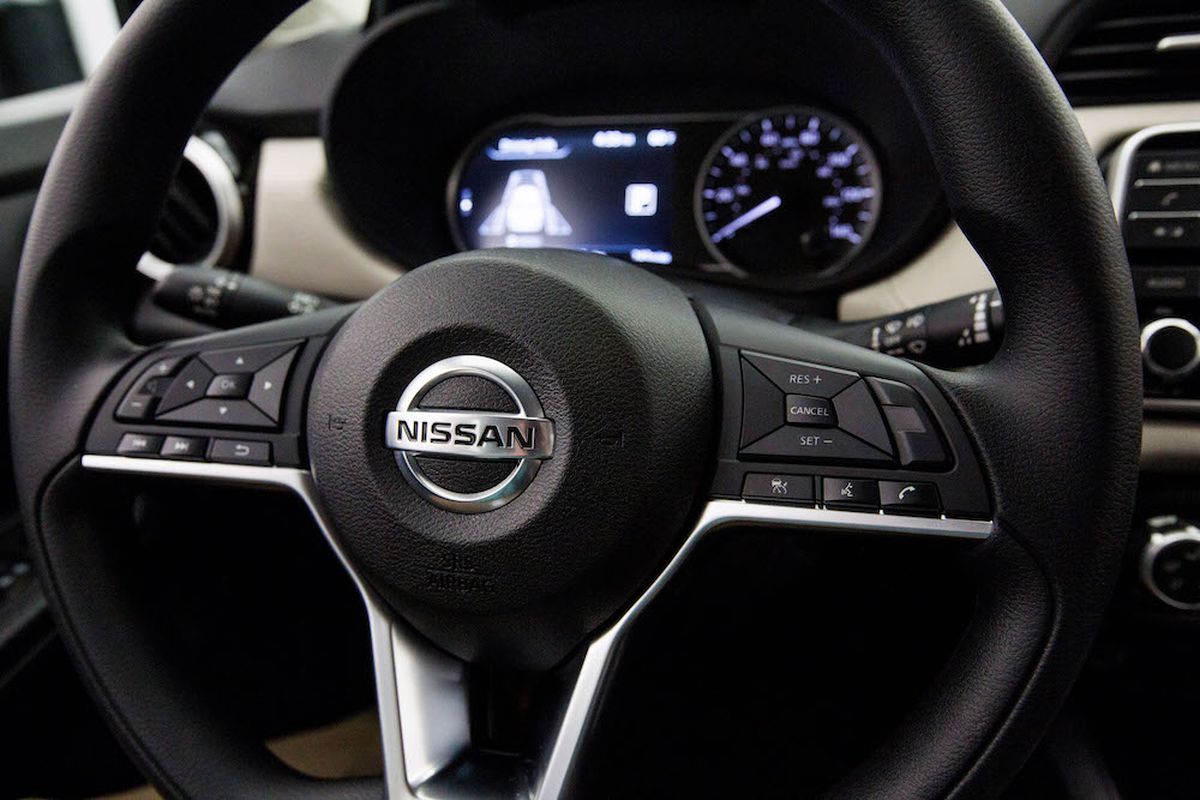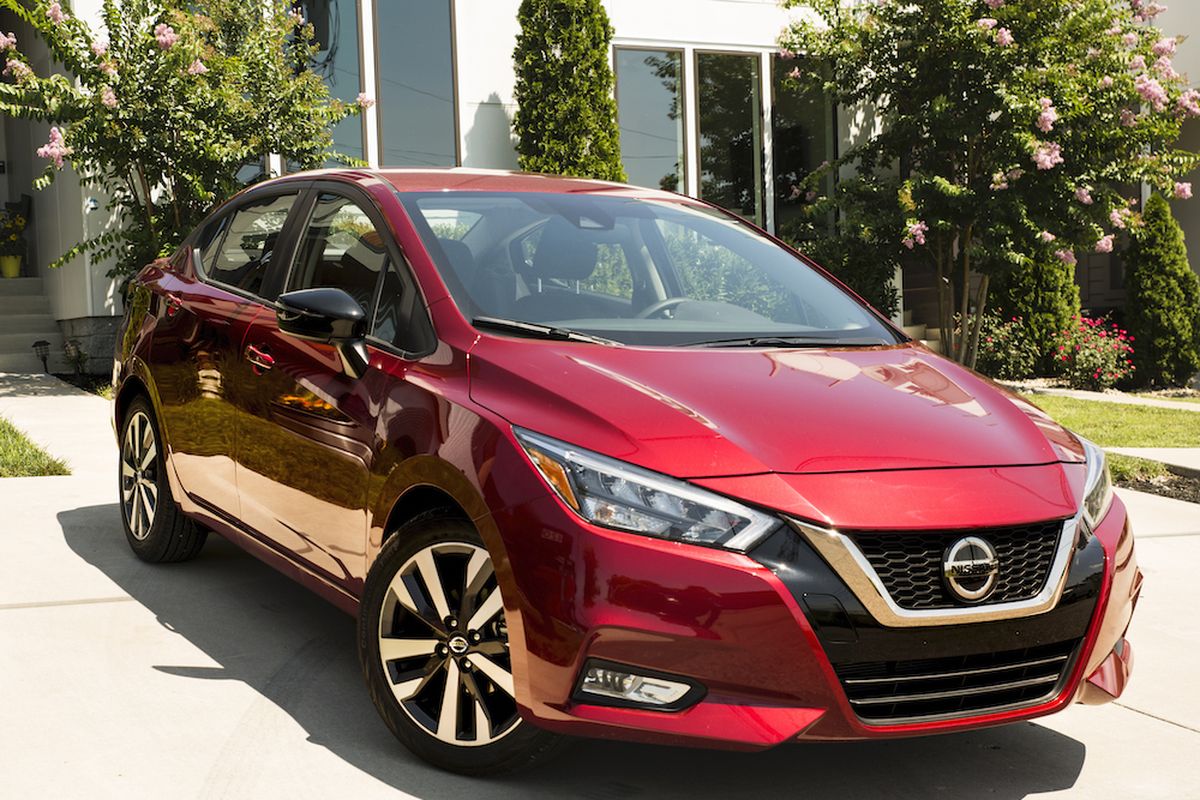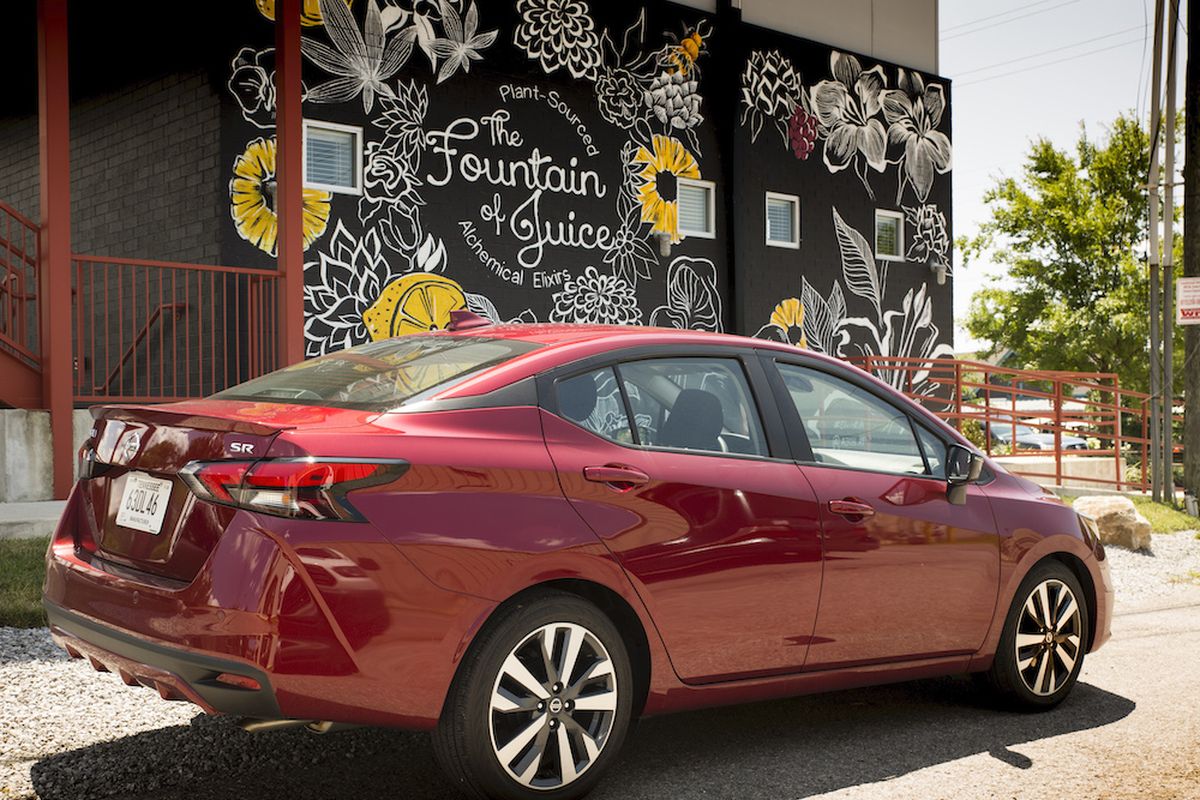2020 Nissan Versa: Subcompact sedan swaps cheapest-car title for big-league updates
The new Versa is a thoroughly modern sedan, with a fatter inventory of features, a more comfortable and tech-friendly cabin and improved ride and handling. (Nissan)
For a decade, Nissan's Versa subcompact sedan reigned as America’s least expensive car.
That era comes to an end, with the debut of the third-generation 2020 Versa. Pricing now begins at $14,730, a bump of just over $2,000.
The result is a car that’s better in virtually every way. Better than even a $2,270 tariff might suggest. The new Versa is a thoroughly modern sedan, with a fatter inventory of features, a more comfortable and tech-friendly cabin and improved ride and handling.
The Versa is no sport sedan, nor does it have near-luxury ambitions. But if the first two generations were about basic transportation, the third elevates the mission. Its desirability now resides in its merits, not merely its price point.
More substantial, responsive
The goodness begins with a platform that’s been heavily revised for rigidity and strength. It produces a myriad of desirable consequences, including a quieter cabin and reductions in harshness and random chassis vibrations.
From the driver’s seat, the car feels more substantial and responsive. For everyone else, it’s just plain more comfortable.
At highway speeds, the Versa settles in and delivers a stable ride.
Tweaks to the steering system hardware create a crisper, more responsive feel and greater accuracy. The system doesn’t communicate much from the road surface, but that doesn’t matter much in a segment where performance isn’t much more than an afterthought.
Three trims, two powertrains
The 2020 Nissan Versa is offered in three trim levels: S, SV ($17,640) and SR ($18,240). All are powered by a 1.6-liter four-cylinder engine that makes 122 horsepower and 114 pound-feet of torque, up by 13 hp and 5 lb-ft over last year’s model.
The default S is available with either a five-speed manual or Nissan’s Xtronic continuously variable transmission (CVT).
The SV and SR trims can be had only with the CVT, whose simulated gear ratios help suppress engine drone and the rubber-band effect common to the technology. A heavy foot on the throttle sends engine revs soaring, but the results are no more annoying than those produced by other CVT-equipped competitors.
One thing the new Versa is not is quick: the 0-60 sprint comes around in a deliberate 9.7 seconds.
The redesigned Versa bears a strong resemblance to its Altima sibling giving it a more stylish and mature presence. It’s lower this year by 2.3 inches, wider by 1.8 inches and longer by 1.6 inches.
Crisp, uncluttered cabin
Inside, the crisply designed and uncluttered forward cabin gains an upscale vibe. The plastic surfaces lining the dash and door panels are smoother-grained and more attractive than before.
The cloth upholstery also looks better and appears to be more durable. Upgraded knobs replace the old bargain-basement switchgear.
Casual storage opportunities are limited to a cell phone-sized cubby just fore of the shift lever and a small bin in the center console.
Six-way adjustable front seats are comfortable and sufficiently supportive for medium-range trips, though the jury is out on longer journeys.
Front-seat occupants enjoy abundant legroom and headroom but the redesign carved a full six inches from rear-seat legroom.
CVT-equipped models get split-folding seatbacks that boost cargo space. With the manual gearbox, the seatbacks don’t fold.
This tradeoff pays off
For 2020, Versa’s standard features list grows as some amenities that were formerly exclusive to the upper trims have migrated to the S. They include power windows, power locks and keyless entry with push-button start.
Other standard gear includes a 7.0-inch touchscreen, Siri Eyes Free and Bluetooth phone and audio connectivity. Three USB ports keep the personal devices full of charge.
Standard driver-assistance technology includes front and rear automated emergency braking with pedestrian detection, automatic high-beam headlights and lane-departure warning.
Nissan’s Mobile Safety Technology, standard on SV and SR trims, adds blind-spot monitoring and rear cross-traffic alert.
SR models can be equipped with heated front seats and adaptive cruise control.
SV and SR grades include the NissanConnect infotainment system, which features Apple CarPlay and Android Auto. Satellite radio functionality is included, though a subscription is required.
Life is all about tradeoffs. In the Versa’s case, the give-and-take produces a seriously better car. I expect most of us would take that deal.
Questions or comments? Contact Don at don@dadair.com.
2020 Nissan Versa SR
Vehicle base price: $14,730
Trim level base price: $18,240
As tested: $19,645 (includes handling and destination)
Options: heated front seats, adaptive cruise control, floor mats
EPA ratings: 35 combined/32 city/40 highway
Regular unleaded fuel specified




